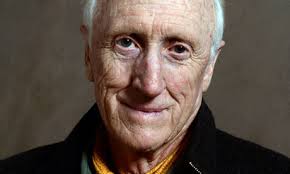It appears to me that the original vision and promise of the Internet, referred to by many as Digital Utopianism, is at severe risk of deteriorating into a “balkanized” and severely impaired World Wide Web.
Internet barriers, censorship, protectionist Internet policy, and ubiquitous surveillance seem to be the emerging new reality. Notable digital luminaries the likes of Vin Cerf and Bill Gates have been questioned on this point, and both have expressed no major concern about deterioration of the freedom of the Internet or with the original Utopian vision. The argument is that the World Wide Web cannot be effectively blocked or censored. Google would probably respond that their “loon balloons” could simply be launched to counter censorship. As a long time Silicon Valley high tech executive, I understand this optimistic view, but the facts on the ground are now providing serious evidence that the Internet is under attack, and may not survive unless there is a significant shift in these new trends.
This week alone, Turkey’s Erdogan has tried to block both Twitter and YouTube to prevent Turks from viewing evidence of his corrupt government. This morning’s New York Times reports Edward Snowden’s latest revelation. While the U.S. government and media were investigating and publicly reporting on Chinese government Internet espionage and Chinese network equipment manufacturer Huawei, the NSA, the British GCHQ and Canada’s Security Intelligence Service (CSIS) , were all collaborating, doing exactly the same thing. The hypocrisy and irony of this is not lost on either the Chinese or the Internet community. CBS 60 Minutes reported on the Chinese espionage, but has been essentially silent on NSA’s own transgressions. 60 Minutes even broadcast a report that NSA metadata was essentially harmless, which has now been shown to be false. The 60 Minutes objective reporting problem is the canary in the coal mine of the corporate takeover of media and the Web. Protectionist policies in various countries targeted against Google, Microsoft and others are emerging. One of the many negative effects of the NSA revelations was the announcement this week that the United States was giving up control of the International Committee for Assigned Names and Numbers (ICANN), which essentially sets Internet traffic policy. Finally, this week, Netflix spoke out forcefully against the “peering agreement” it was blackmailed into signing with Comcast to insure “quality of service” (QOS) for Netflix programming to the edges of the Web.
Read more: NSA breached Chinese servers
Read more: Netflix Thinks Peering Should Be A Net Neutrality Issue
I recently came across Professor Fred Turner, Professor of Communication at Stanford. It has been a revelation for me. His book, “From Counterculture to Cyberculture’ is an acclaimed milestone work. Turner has articulated the World I lived in the counterculture of the 1960’s and in the early Silicon Valley. His work explaining the evolution from the “counterculture” of the 1960’s to the emerging new “cyberculture” of the late 1980’s and 1990’s is an excellent record of that time in northern California. This was the World of Steve Jobs at that time and his personal evolvement to a digital Utopian. It is detailed in Jobs biography, and in Jobs wonderful Stanford University 2005 commencement speech, in which he also acknowledged the importance of Stewart Brand and the Whole Earth Catalog. This was also my countercultural World as a Communications student at San Jose State at that time, in the heart of the Silicon Valley, and subsequent high tech career, beginning at Intel Corporation. But even Professor Turner has expressed his own ambivalence about the future direction of the Web, though only from the standpoint of less worrying lack of diversity of Web communities. My concern is much more deeply based on current evidence and much more ominous.
Fred Turner, Stanford Professor of Communication – Counterculture to Cyberculture
Stewart Brand, the father of the Whole Earth Catalog and the original digital utopia visionary, has been rethinking its basic concepts. Brand has come around 180 degrees from environmental Utopianism based on “back to the land,” and is now embracing the future importance of urban enclaves. While this new urban view is now a widely held idea by many futurists, it can also be viewed as another facet of the end of digital utopia. This TEDTalk by Brand lays out his new vision. Where we go from here is anyone’s guess.


















